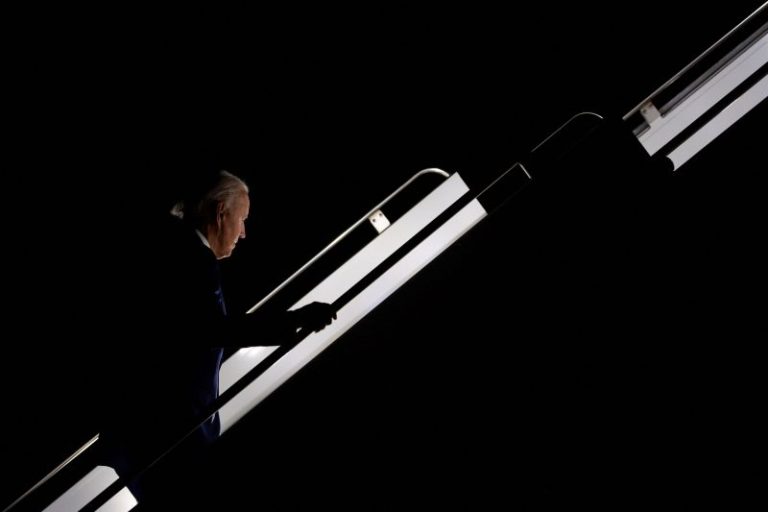Someone, working for some political campaign at some point in the past, had a brilliant idea. You know how campaigns want to vacuum up as much information about voters as possible? Well, why not send out an email asking people to sign a card for the candidate’s upcoming birthday! Confirm support, get names, maybe even a contribution — all in the guise of the innocuous act of celebrating the candidate growing a year older. Genius.
In the years since, the tactic has become pervasive, if not a pestilence. It has expanded from signing a card for this candidate’s birthday to signing one for any popular politician’s birthday. Political action committees send out cards on behalf of various popular politicians so they can vacuum up all that data for themselves.
In 2021, for example, President Biden’s birthday prompted emails encouraging people to sign cards from Sens. Robert P. Casey Jr. (D-Pa.) and Catherine Cortez Masto (D-Nev.), the Democratic Association of Secretaries of State, the Democratic Congressional Campaign Committee, the Democratic Governors Association, the Democratic Senate Campaign Committee, PACs including I Vote For America, Latino Victory, March On, Never Again and Save Democracy, and candidates Dwight Evans, Derek Kilmer, Tom O’Halleran and Josh Shapiro.
This year, though? Less enthusiasm about the day. (Casey had a “card,” though, as did March On.) In part this may be a function of Biden having been unpopular for longer. But part of it is certainly that the White House has not been eager to remind people that Biden just turned 80 — the oldest president in history turning a year older.
There’s an interesting bit of context to this, though. When the United Nations earlier this month marked the world’s population hitting 8 billion, I noted that this was in part because people were living longer — a contributor to the United States skewing much older than it used to. In 1900, for example, only about 4 percent of the population was 65 or over. In 2020, more than 17 percent was. Thanks to extended life expectancies and to the aging baby boom, America is older now than it has ever been.
This made me wonder how Biden’s age compared to the nation’s. He’s the oldest president ever, but America is the oldest America ever. Did that make his age less exceptional? I pulled data on the country’s population over the past 120 years and compared it to the age of the president during that period. And I can say: yes, Biden’s age is still exceptional.
The chart below shows the percentage of the population each year that’s the same age as or older than the president who served the majority of that year. (President ages are as of Dec. 31 of the year.)
The president in 1900 was William McKinley, aged a relatively young 57. But in 1900, 88 percent of the country’s population was younger than that, so he was an old president relative to the nation’s population that year. In 2003, when George W. Bush was 57, he was older than only about 71 percent of the population.
The youngest two presidents in history were Teddy Roosevelt and John F. Kennedy. When Roosevelt took office after McKinley’s assassination in 1901, he was about to turn 43, older than about 80 percent of the population. When Kennedy took office six decades later the year he turned 44, he was older than only 69 percent of the aging population. The youngest president relative to the population, though, was neither of them. Instead it was Barack Obama, who was older than 65 percent of the country’s population when he took office in 2009, the year he turned 48.
There are a few interesting patterns in the graph. There was the Teddy Roosevelt-to-Woodrow Wilson period in which the presidents were all born within a two-year period and so the relationship to the population remained fairly constant. And of course, the Bill Clinton-George W. Bush-Donald Trump periods, given that all three were born in 1946.
But then there’s Biden. Yes, America is older than it used to be, but Biden’s age is still fairly exceptional. He’s older than almost 96 percent of the population — the second-biggest gulf between a president’s age and the population’s. The victor here is Ronald Reagan who, in his last year in office, turned 77, making him older than a fraction more of the population than Biden is now.
There’s certainly some fuzziness at the boundaries here. The population numbers are Census Bureau estimates; where and when you measure age matters, too. But one can certainly say that Biden is older relative to the population than any other president save Reagan — even as the population gets older.
Of course, the situation for Biden is relatable in its own way. Doesn’t everyone, reaching some milestone of age, get less enthusiastic about birthday cards celebrating it?

